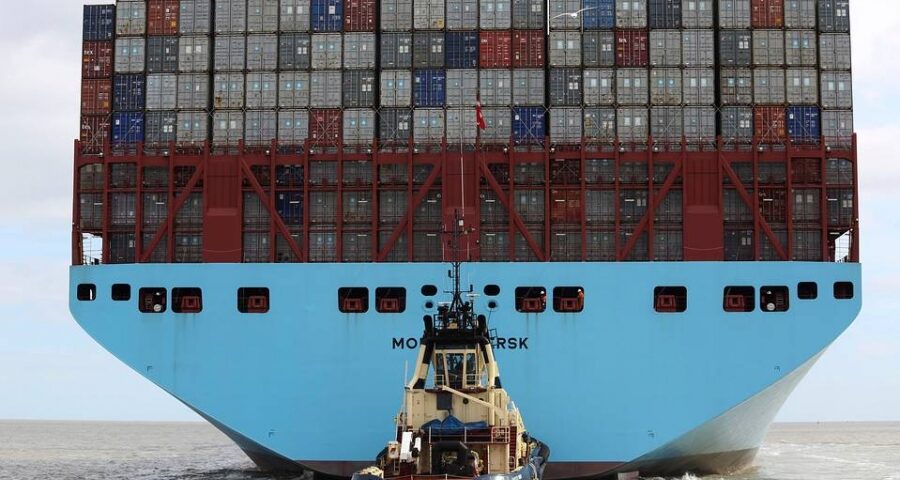 In the, often heated, discussions on the effects of mega-ships on shoreside infrastructure, let’s include the question of co-operation between nearby ports. PortEconomics co-director Peter de Langen comments that the issue of co-operation is clearly relevant for the two large upstream ports in Europe that have called for such a discussion, Hamburg and Antwerp.
In the, often heated, discussions on the effects of mega-ships on shoreside infrastructure, let’s include the question of co-operation between nearby ports. PortEconomics co-director Peter de Langen comments that the issue of co-operation is clearly relevant for the two large upstream ports in Europe that have called for such a discussion, Hamburg and Antwerp.
At his latest Port Strategy viewpoint column, as The Analyst (more @PortStrategy) Peter comments:
“Hamburg was initially involved in, but later stepped out of, the development of JadeWeserPort, a deep draft port in North Germany, less than 150 km away from Hamburg; in Antwerp, the theme of co-operation has been under discussion for at least a decade. However, while seemingly sensible co-operation between the coastal port of Zeebrugge and the upstream port of Antwerp eyes has been discussed at length, no concrete moves have been made.
Perhaps co-operation has not emerged because there is no tangible benefit: even though there is an intuitive logic, the numbers may not work. Another potential explanation may be that the centuries old and deeply rooted Hanseatic port development approach of ports in this part of the world prevents such co-operation. Through this approach, ports create wealth for their cities and regions, hence losing container volumes is equal to a wealth reduction for the regional and urban economy. Because winning is defined in volumes, co-operation is not necessarily a win-win game.
Without having done the sums, I lean towards this second explanation. If we promote a shift in mindset to define ‘winning’ as ‘value for society’ instead of ‘throughput volumes’, co-operation becomes win-win. Hamburg and Antwerp can then continue to create value for port users through better connectivity and competitive supply chain costs and for society through environmentally-friendly transport and jobs creation. The added bonus is that these ports can concentrate on developing propositions to handle mega-ships in nearby deepwater satellite ports when the costs of accommodating such ships upstream are prohibitive.
All three deepsea services – all Maersk’s – that call at JadeWeserPort also call at either Bremerhaven or Hamburg. This suggests that these ports may be complementary even without draft limitations. North German ports are an interesting ‘living lab’ in that respect: Bremen embraced the satellite port approach – the city state Bremen is a shareholder in the JadeWeserPort landlord port company and Eurogate, the container terminal operator in Bremen, operates JadeWeserPort container terminal. Hamburg, on the other hand, decided to go-it-alone.”












